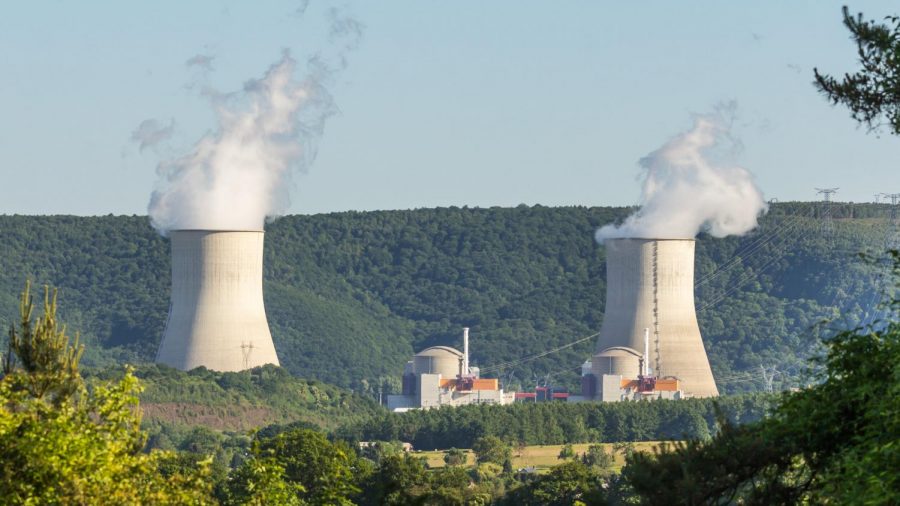New Illinois Clean Energy Bill
September 27, 2021
Since the 1900s, the world has seen a sharp increase in air temperature, ocean temperature, sea level, extreme weather events, ocean acidification, and a decrease in ice cover (NASA). Climate change, which is the result of excess carbon dioxide in our atmosphere, is to blame for such destruction. In recent years, as severe weather events have become more severe, world leaders have been looking for ways to implement climate change regulations.
On Monday, September 13th, Illinois senators passed a “Clean Energy Bill” that could make the state the national leader in climate legislation.
Big Energy Goals:
According to the new bill, natural gas and coal plants must eliminate their carbon emissions by 2045. In order to do this, fossil fuel plants will most likely rely on a method called “carbon capture and storage.” CCS collects the carbon dioxide emissions from consumers (mostly industrial plants) and converts the emissions into a liquid that can be stored underground (World Nuclear). The coal and natural gas plants might also decide to turn their attention away from fossil fuels, and instead train people to harness renewable energy. Either way, if the plants cannot achieve net-zero carbon emissions by the deadline, the plants will face closure.
By 2050, the bill states that 100 percent of Illinois’ energy will come from ‘clean’ sources. Clean energy is defined as energy that is renewable and does not emit carbon dioxide into the atmosphere. Currently, Illinois utilizes wind, solar, and nuclear power for its renewable energy (WBEZ).
New Jobs:
Implementing such a large change in energy is going to require a state-wide shift in infrastructure. Therefore, the new climate legislation promises massive job creation across Illinois. From engineering to construction to job training, the bill should open over 28,000 job opportunities in Illinois (Exelon Corp.). The new jobs will be especially appreciated nearly two years into the pandemic which has taken a toll on the national economy.
Nuclear Power:
Probably the most significant effect of the clean energy bill is that it allows two of the biggest nuclear plants in Illinois to remain open. The Byron and Dresden nuclear plants – owned by Exelon – were set to close later this year. The energy bill will supply them with the funds they need to remain open, and it decreases the influence and competition created by fossil fuel companies. If the bill passes, as it is expected to, the plants will be able to keep their hundreds of Illinoisan employees (Exelon Corp.).
Keeping the nuclear plants open will not only supply Illinois with an economic advantage; it will be extremely beneficial to the state’s climate goals as well. Currently, nuclear power makes up about 60 percent of statewide energy usage – and about 90 percent of Illinois’ renewable energy usage. Because Illinois industries and governments are already familiar with nuclear energy, they must rely on it heavily in order to become carbon-free by 2050.
Cost:
While the clean energy bill promises much in terms of climate regulation and job opportunities, the bill raises some concerns over cost on individuals. Government officials in favor of the bill tend to estimate about a $4.00 increase in energy bills per month per family. Other groups, such as the Illinois AARP, expect as much as a $15.00 increase. Either way, the new piece of legislation is going to cost Illinois families more for their energy usage (WBEZ).
Overall, the Clean Energy Bill has already fostered optimism around the globe. The bill is sure to decrease the emission of carbon dioxide within the state, and if we perform this legislation effectively, other states and countries are bound to follow.
Sources Used: https://www.wbez.org/stories/whats-in-illinois-massive-green-energy-bill/84a3d48d-e82c-45f9-add3-200923f1fab2


